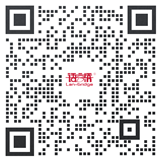無論翻譯對你來說是學習還是工作,我們都應該從中找尋一些方法,積累一些經驗來幫助我們更好地進步。下面專業翻譯公司就分享一些在中英翻譯的工作之中積累的經驗干貨。如何擁有良好的中英翻譯意識?
第一:要對翻譯的重要性有深刻的、充分的認識。
例如,天涯海角:不是the End of the World (應為Land’s End / End of the Earth) 。再如,一小時內免費送機票上門:不是We give you tickets free of charge within one hour.(應為We offer free delivery of your air tickets within one hour after your booking confirmation.)
第二:要善于仔細地、深入地、準確地理解中文原文的意思。
這是因為準確的理解是做好翻譯的前提。例如,摸著石頭過河:不是crossing the river by feeling the stones。(而是wade across the stream by feeling the way )正確的做法應該是按照下面的步驟去做:
1.“摸著石頭過河”的字面意思如何理解?
2.它有什么暗含或延伸的意思?
3.英語里有沒有相同或類似的說法?.如果有,就可以直接借用;如果沒有,是進行直譯還是意譯?
4.如果直譯為 crossing the river by feeling the stones是否能被外國人理解?
5.過河是乘船過(crossing by boat)還是淌水過(wading across),動詞用什么形式?
6.這里的河是大河、中河還是小河 (river, stream, brook, etc.)?
7.摸的方式是用手摸還是用腳觸?
8.石頭是大石頭還是小石頭(rock, stone, pebble, etc.)?
9.如果意譯為 learning by experiment / by trial and error是否可取?
10.直譯和意譯相結合wading across the stream by feeling the way如何?
第三:中文和英文的對應詞有時意思并不相同或者不完全相同,不能照字面翻譯。
例如,他的英語說得真好,就像外國人一樣。不是He speaks English so well, he sounds like a foreigner.而是He speaks English so well, he sounds like a native speaker.
第四:有時候中文字面的意思表達不充分,部分信息被省略了或被隱藏起來了。
例如,退耕還林:不是return farmland to forest,而應該是restore “woodland-converted farm-plots” back for afforesting 。春運:不是spring transportation,而是the rush / peak season of passenger transportation during the Spring Festival。
第五:有些中文詞語沒有什么特殊涵義,而與之相對應的英文詞語卻有著特殊的涵義。
例如,與“便宜”、“價廉”相對應的“cheap,”它有時候會帶有貶義,成為“質次價低”的意,如cheap jewelries, cheap dresses, cheap furniture 等。我們可以說I bought a cheap watch for my child,對小孩無所謂;但不能說I bought a cheap dress for my girlfriend. 因為這樣說會冒犯對方。在后一種情況下必須用inexpensive一詞。
第六:避免用中式英語進行表達,而要盡量用地道的英語進行表達。
假如我們要把“我過去學過一些法語,但現在都忘了,都還給老師了”這句話翻譯成英語,最好不要說 I learned some French in the past. Now I have forgotten it. I’ve returned it to the teacher. 比較好的說法是 I used to know some French, but I’ve forgotten it. It has found its way back to my teacher.
第七:根據不同場合,英語的表達有莊重 (formal) 與隨意 (informal) 之分。
比如“禁止吸煙”(No Smoking)、“請勿吸煙”(Thank you for not smoking) 和“為了您和他人的健康,請勿在此吸煙”(For hygiene’s sake, please refrain yourself from smoking in this room.)
第八:要注意各行各業的不同術語的選擇。
比如我們要把“專業簽證人員”翻譯成英語,那么我們就要按照外交用語的習慣把它翻譯為visa officers,而不應該照字面上翻譯成specialized visa personnel。
再比如,高速公路上的警示語“請勿疲勞駕駛,”翻譯成英語不是Don’t drive tiredly,按照交通法規術語應該翻譯為Drowsy driving is dangerous 或Drive alert, arrive alive。
第九:注意漢語和英語之間的文化差異。
把“相聲”翻譯成英語不能只是翻譯其形式,還要翻譯其內涵。翻譯成cross talk 外國人不明白;不如翻譯為comic dialogue 更好懂。
再如,假設我們要把“以外貿為龍頭”翻譯成英語,能不能直接翻譯為with foreign trade as the dragon head呢?這樣翻譯是很難讓外國人明白的,因為“以……為龍頭”這個說法是源自耍龍燈的習俗,而多數外國人不一定熟悉中國人的這一習俗。為了取得好的翻譯效果,最好是用能夠跨越文化障礙的表達方法,如“火車頭”或“旗艦”:with foreign trade as the locomotive / flagship。
第十:漢語和英語在語法語序和句子結構上都有很大的差別。
因此,在進行中譯英的時候必須要考慮到這些方面的變化。例如,改革開放開放取得了巨大的成就:不是The economic reform and the opening-up have made great achievements. 而是把“巨大的成就”當作主語,把主動語態變成被動語態:Great achievements have been made in the economic reform and in our efforts to open-up China to the outside world.



 蜀ICP備14015776號-4
蜀ICP備14015776號-4
